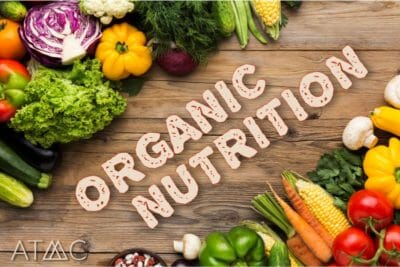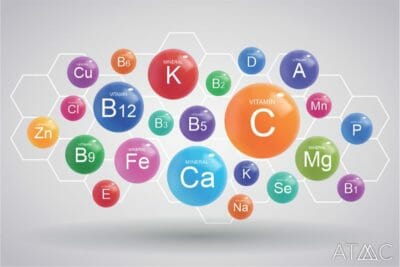Last Updated on August 3, 2021 by
Alternative to Meds Editorial Team
Table of Contents:

Last Updated on August 3, 2021 by
Alternative to Meds Editorial Team

Addiction and cravings can primarily be traced back to the reactions in the brain chemistry experienced by drug users.
According to Michael Bierer, MD on health.harvard.edu:
“An addicted person’s impaired ability to stop using drugs or alcohol has to do with deficits in the function of the prefrontal cortex — the part of the brain involved in executive function. The prefrontal cortex has several important jobs: self-monitoring, delaying reward, and integrating whatever the intellect tells you is important with what the libido is telling you. The difficulty also has to do with how the brain, when deprived of the drugs to which it is accustomed, reacts to stress. The response is usually exaggerated negative emotion, and even despair. In this setting, the strong association of learned environmental cues (for instance, smelling beer at a ball game or seeing the corner where the dealer can be found) exacerbates the craving for the substance.”
What this means is simple, for any person attempting to get sober, thinking about quitting drugs, or worried about relapsing, providing support for the brain chemistry is vital. One of the easiest ways to help with cravings is to eliminate addicting substances from our lives, including food and drink items. At many rehab facilities, or 12-step meetings, coffee is available, or treats containing processed sugar. Both of these ingredients are known to trigger addictive patterns. A “caffeine rush” or “sugar high,” while usually enjoyed by the user at the onset, will often lead to a crash. This pattern of getting high, then experiencing a crash, is very similar to the feelings experienced by drug users and addicts. So unfortunately, reaching for that coffee, or energy drink in the early phase of recovery is probably not the best idea, and may actually trigger a relapse.
Talk to any expert and the opinions will vary, but at the Alternative to Meds Center inpatient holistic addiction centers, we prefer to cover all of the angles. Below we will list some of the dietary guidelines our patients follow, and why they help the brain chemistry.
Be careful during early recovery not to trade your drug or alcohol addiction for a caffeine addiction. The goal of recovery should be to find a lifestyle in which an individual can live addiction free. According to this article from ScienceDirect, you can see that caffeine has many potential addictive properties, causing the user to need more and more of the psychoactive substance “Caffeine, one of the world’s most popular psychoactive substances, is sought for its central nervous system stimulant effects. If coffee, tea, and soda alone do not provide the desired stimulation, some consumers are turning to the newest fad in the caffeine market, energy drinks. These beverages are loaded with caffeine and sugar, infused with herbal additives, and marketed particularly to youth. Caffeine produces dose-dependent symptoms, and intoxication may develop with overconsumption. Caffeine is also recognized for its addictive properties, and discontinuation results in a withdrawal syndrome.
Not only is processed sugar horrible for our gut and teeth, it also may cause addictive reactions and sensations in the brain, similar to using drugs or alcohol. This clip from a National Institute of Health post explains how addiction and sugar can display similar addictive properties “question is whether or not sugar can be a substance of abuse and lead to a natural form of addiction. “Food addiction” seems plausible because brain pathways that evolved to respond to natural rewards are also activated by addictive drugs. Sugar is noteworthy as a substance that releases opioids and dopamine and thus might be expected to have addictive potential. This review summarizes evidence of sugar dependence in an animal model. Four components of addiction are analyzed. “Bingeing,” “withdrawal,” “craving,” and cross-sensitization are each given operational definitions and demonstrated behaviorally with sugar bingeing as the reinforcer. These behaviors are then related to neurochemical changes in the brain that also occur with addictive drugs.”
Could gluten be causing symptoms or reactions in the addicts brain chemistry or body which makes it hard to break addictive patterns? Not only is most gluten a bad idea due to GMO ingredients, according to research, increased symptoms of depression and anxiety are possible in people who are gluten sensitive, even when the testing for celiac disease comes back as negative.

We see many instances in which someone will attend a traditional rehabilitation center for drugs and alcohol, where diet is not a factor, and for many, their recovery is delayed due to unhealthy eating habits, or addictions to caffeine, sugars, or breads. Oftentimes, overuse of energy drinks, or stimulating products, will lead to a triggering of past addictive thoughts or behaviors. The only true way to break free from addictions is to be fully aware and mindful of how the things we take into our body, impact our overall health and brain function.
For someone who is in need of a inpatient drug rehab, it can be a life altering experience. Between the high cost of drug rehab, and the amount of time away from home, anyone entering a rehab is in for a pretty major life event. One which could either make or break their future.
Making the choice to attend a rehab only to leave the treatment addicted to caffeine and overeating, makes no sense. When someone decides to get sober and recover, a healthy lifestyle, and advice on how to live life in the best way, should be a part of the treatment plan. Alternative to Meds Center is a licensed holistic substance abuse and mental health facility that takes the time needed to prepare our clients to live a healthy lifestyle which will aid in long-term recovery.
To learn more about addiction recovery from real clients at ATMC please continue reading.

Diane is an avid supporter and researcher of natural mental health strategies. Diane received her medical writing and science communication certification through Stanford University and has published over 3 million words on the topics of holistic health, addiction, recovery, and alternative medicine. She has proudly worked with the Alternative to Meds Center since its inception and is grateful for the opportunity to help the founding members develop this world-class center that has helped so many thousands regain natural mental health.
Can you imagine being free from medications, addictive drugs, and alcohol? This is our goal and we are proving it is possible every day!
Read All StoriesView All Videos